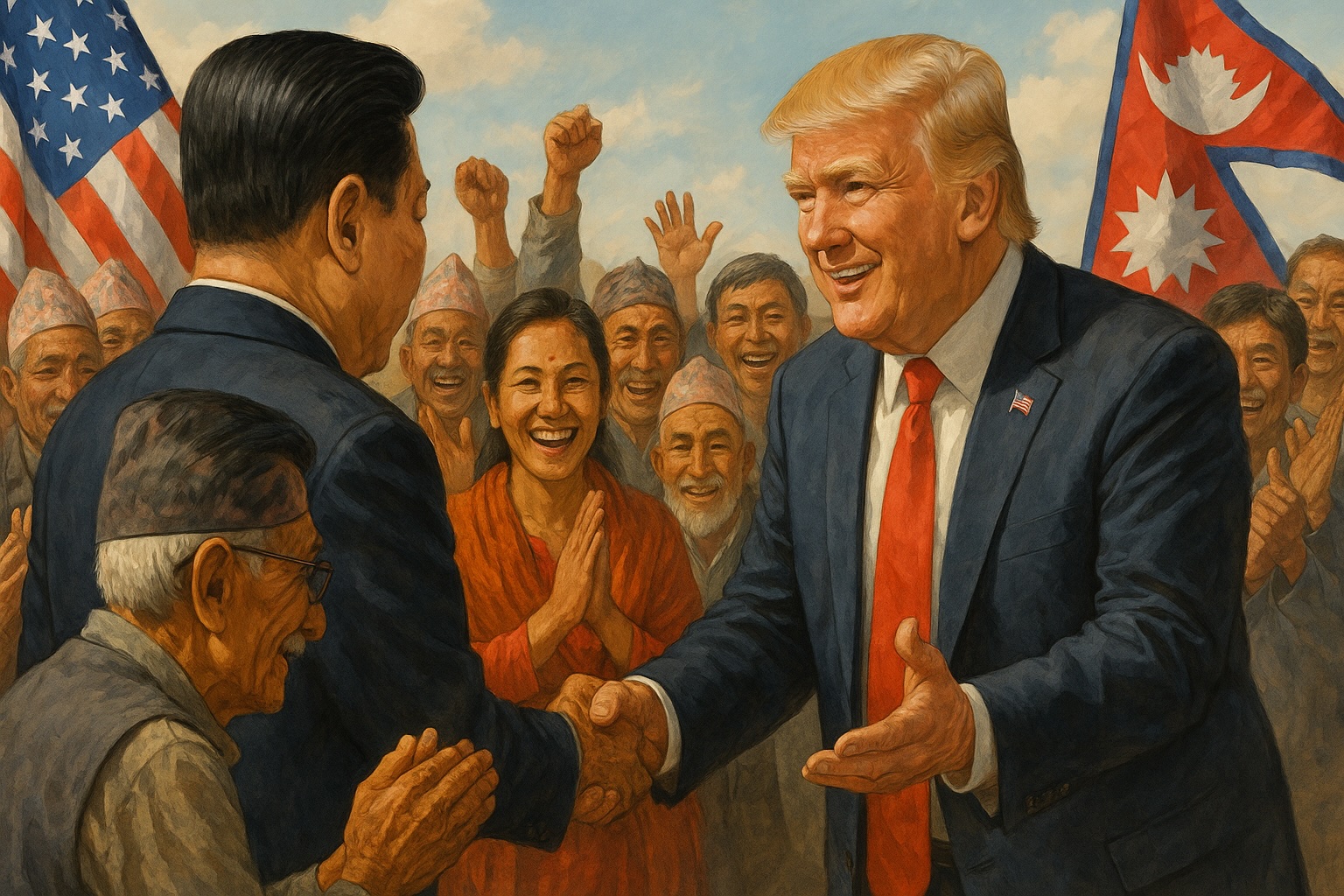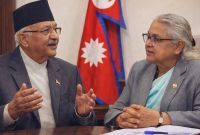Trump’s Shocking U-Turn on Nepal’s MCC Delivers Crushing Blow to Xi Jinping’s BRI Dreams

Kathmandu — In a surprise decision that has triggered political ripples from Beijing to Kathmandu, the Trump administration has announced the continuation of the Millennium Challenge Corporation (MCC) compact in Nepal—sending shockwaves through China’s strategic corridors and offering a lifeline to Nepal’s struggling infrastructure commitments. After months of confusion and internal debate, Nepal’s finance ministry received official confirmation that the United States will not pull the plug on its $500 million grant—a decision that many analysts interpret as a calculated geopolitical counter to China’s Belt and Road Initiative (BRI) in South Asia.
The MCC, which had faced uncertainty under Trump’s newly restructured Department of Government Efficiency (DOGE), was widely expected to be slashed as part of sweeping cuts in foreign aid. The directive to shut down “inefficient” overseas spending placed MCC Nepal in limbo. However, an internal State Department review has now recommended the continuation of the Nepal Compact, citing not only developmental goals but also broader strategic considerations. A U.S. Embassy official confirmed to local authorities that the program would move ahead as planned, a move that left Chinese officials stunned and scrambling for diplomatic damage control.
Signed in 2017, the MCC compact includes a $500 million grant from the U.S. and a contribution of nearly $200 million from Nepal. It supports energy transmission and road infrastructure—two sectors also targeted by China under its BRI framework. With the total value of the MCC projects nearing $740 million after recent adjustments, the scale and symbolism of this aid have become a proxy battlefield in the growing U.S.-China rivalry.
For Nepal, the decision couldn’t have come at a more crucial time. Officials within Nepal’s Ministry of Finance privately admitted they had been preparing alternative funding arrangements in case of a U.S. withdrawal. “Although we had received informal assurances, nothing was certain under the new U.S. administration,” one senior official said, adding that the formal greenlight has brought “urgent relief.”
But this is not just about funding roads and power lines. This is about narrative control in South Asia. In June this year, MCC headquarters issued a bold statement declaring that the agency was “effectively countering” the influence of the Belt and Road Initiative. A concurrent resolution in the U.S. Congress highlighted MCC’s role in opening markets to American businesses and shaping a global order built on transparency and democratic values—an implicit jab at what many critics see as China’s opaque and coercive loan diplomacy.
Meanwhile, Chinese officials have refrained from public comments but sources close to diplomatic circles in Kathmandu suggest “silent displeasure” is mounting. Beijing has been deeply invested in aligning Nepal’s infrastructure development with its BRI model, and Washington’s decision to stay in the game signals that China’s dominance in Nepal is far from absolute.
Locally, public reactions remain mixed. While civil society leaders supportive of democratic alliances have praised the U.S. commitment, sections of Nepal’s political left—which had earlier protested against MCC—are now caught in a difficult rhetorical position. The balancing act for Nepal’s government is becoming more delicate with each passing day.
What remains to be seen is how China will recalibrate its Nepal policy in response to this diplomatic setback—and whether Nepal can continue to walk the tightrope between two superpowers vying for influence across the Himalayas. As the geopolitical chessboard reshapes itself, the real question now is whether Nepal can leverage this rivalry to secure genuine long-term benefits—or merely become another pawn in a global power contest.
U.S. Suspends MCC in Nepal Donald Trump USA Embassy



![From Kathmandu to the World: How Excel Students Are Winning Big [Admission Open]](https://nepalaaja.com/img/70194/medium/excel-college-info-eng-nep-2342.jpg)
